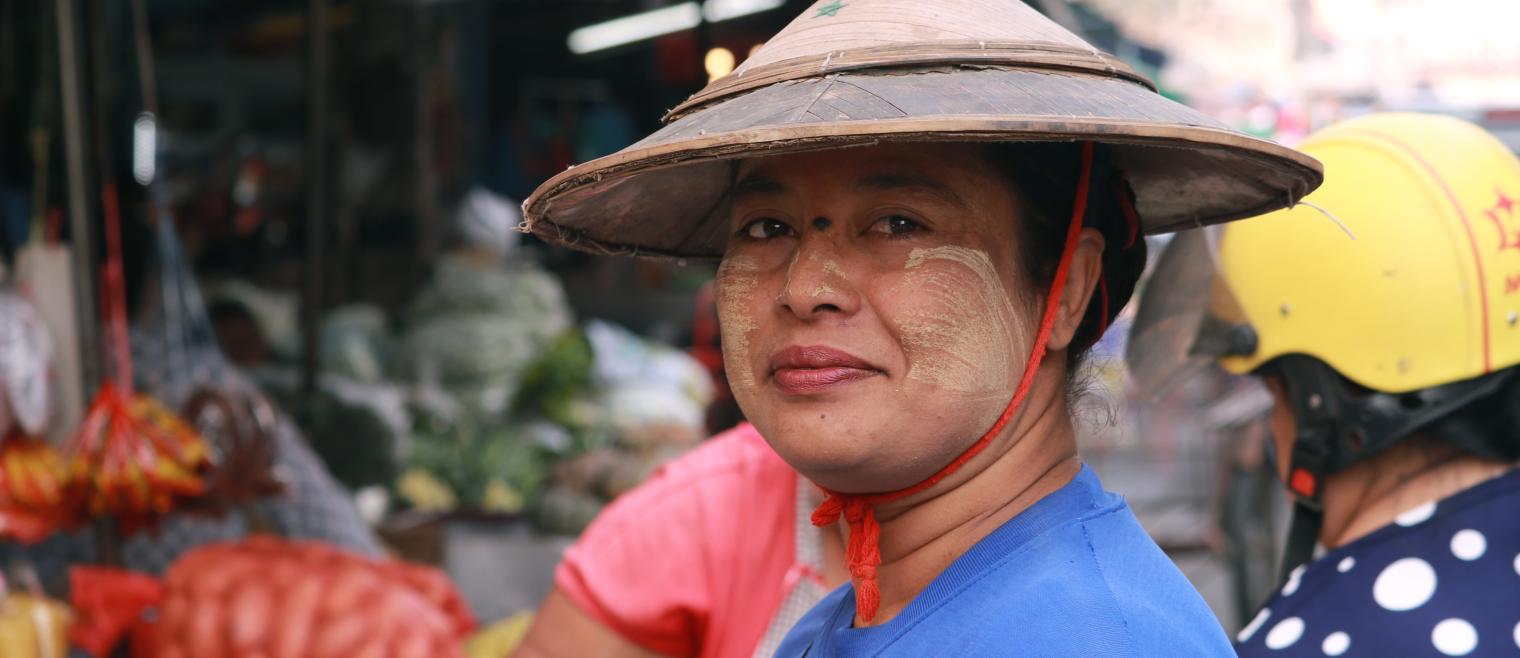The Safe and Fair programme was a 25 million euro investment implemented through a partnership between ILO and UN Women with the overriding objective of ensuring that labour migration is safe and fair for all women in the Association of Southeast Asian Nations (ASEAN), namely: Brunei Darussalam, Cambodia, Indonesia, Lao People's Democratic Republic, Malaysia, Myanmar, Philippines, Singapore, Thailand and Viet Nam.
Through the Safe and Fair programme, the Spotlight Initiative strengthened rights-based approaches and gender approaches to the governance of labour migration, addressed vulnerability to violence and trafficking, and supported the provision of essential services to women migrants who suffer violence and abuse.
When: 1 January 2018 - 31 December 2022 / Development partner(s): Multi Partner Trust Fund Office, UNDP
The programme aimed to address women migrant workers’ vulnerabilities to violence and trafficking, strengthen rights-based and gender-responsive approaches to violence against women, and labour migration governance and support access to essential services by:
- improving the frameworks that govern labour migration and ending violence against women;
- improving access to information and services for women migrant workers and opportunities for them to network and organize;
- producing data and evidence on the experiences of women migrant workers; and
- campaigning to generate a better understanding of the contribution of women migrants.
Programme objectives
- Women migrant workers are better protected by gender-sensitive labour migration governance frameworks;
- Women migrant workers are less vulnerable to violence and trafficking and benefit from coordinated responsive quality services;
- Data, knowledge and attitudes on the rights and contributions of women migrant workers are improved.
Background
In the ASEAN region, women are increasingly migrating. International labour migration in ASEAN has increased over the past decades with almost half of the 10 million migrants in the ASEAN region being women. Women’s labour migration is an important aspect of labour mobility in the region and can be a crucial source of empowerment for women with women migrant workers making vital social and economic contributions to their communities and countries of origin and destination. However, through the migration cycle, women migrant workers face the risk of violence and trafficking. Discrimination limits their access to fair recruitment and decent work, and they have little access to protection and support services. The positive experiences and contributions of women migrant workers can only be fully ensured if their safety, labour and human rights are fully protected.
Violence against women continues to play a significant role in migration – both in driving women into precarious migration pathways, and as part of migration and labour itself. Irregular migrants and migrant domestic workers are at particular risk of exploitation, abuse, violence, forced labour and trafficking due to their status and isolation. Whether migrating through regular or irregular channels, women migrants can face the risk of violence and abuse from intermediaries and employers, as well as from partners and others. Violence against women migrant workers and trafficking are part of the broader spectrum of violence against women, and the cultural and gendered norms that drive it. Such cultural and gendered norms – including the use of gender specific bans that prohibit the migration of women – also impact the migration opportunities available to women, restricting their ability to access regular migration into skilled, safe and well-paid employment. Services are not well-equipped to meet the needs of survivors of violence against women and trafficking. Services are frequently challenging to reach and are often not well coordinated among institutions, including policing, criminal justice, health and social welfare services.
While the ASEAN region has seen advances in addressing violence against women, much more needs to be done. Changing cultural norms around violence against women throughout migration and strengthening rights-based and gender-responsive approaches to safe and fair labour migration governance is necessary in order to achieve labour migration that is safe and fair for all women in the ASEAN region.
Key results (2018 – 2019)
- Law Reform: Technical support was provided to 19 legal and policy instruments ranging from labour migration regulations to national EVAW action plans and draft legislation on domestic work.
- Capacity building: Enhanced capacities of 2,152 persons from domestic worker organizations, migrant organizations, government departments and front-line service providers on women migrant workers’ rights and skills, quality and coordinated service provision to address violence against women migrant workers.
- Organization: Organized 235 women migrant workers into workers’ unions and associations or as peer networks, and facilitated the formation of 1 new migrant domestic workers’ network.
- Service provision: Provided 9,132 women migrants with psychosocial, health, social or legal services, information and skills certification.
- Research and data: Produced and disseminated 37 knowledge products, including in different national languages.
- Changing knowledge and attitudes: Reached 1,424,568 members of the public through public campaigns to change attitudes and behaviours towards women migrant workers and violence against women.
Key resources: FACTSHEET Safe & Fair: Realizing women migrant workers’ rights and opportunities in the ASEAN region
Safe and Fair on ILO website

